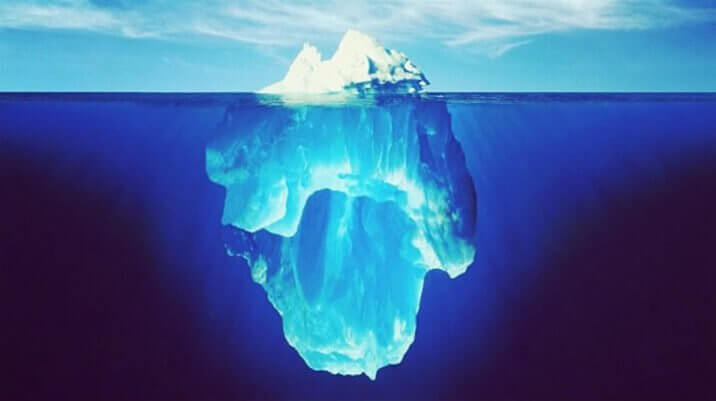Hemingway’s iceberg theory has been applied over the years in various fields, such as literature and human resources, and today we will present this theory applied in the field of psychology.
Hemingway’s theory says that we only perceive what we see at first sight; the rest goes unnoticed as an iceberg, that is, there is a conscious part of the information and an unconscious part.
- Imagine you’re traveling on a boat and you see an iceberg in the distance.
- What do you see?A mass of ice.
- But beneath this iceberg is another gigantic mass of ice holding it.
- As you can see in the main image of the text.
- This invisible part to our senses is very interesting.
When we look at the reality before us, we only see its surface, which is the visible part, according to the iceberg theory, we only see 20% of the total, and the rest?Comparing with our minds 20% would be our conscious part and the remaining 80% would correspond to the unconscious part.
With this, we can reflect on the complexities of our mind and all its processes, that unconscious part that we cannot understand.
For example, think about how many times we believe in something and don’t bother to know if we’re confused or wrong, we take the easy solution and look for information that supports our ideas.
Why do we choose to believe the first impression and not try to see if it is true or false? Why don’t we question costs and benefits more often? Maybe it’s because, after a sudden decision, questions and obstacles arise that we made. to not have in consideration.
Do we as human beings tend to use a cognitive economy program, through which we choose this information that is easier and related to the way we view life?
For example, we think that a situation can be created by different questions: does my friend say such a thing because she wants to be like me, because she is jealous or because she cannot bear that I have luck in life?actually, this may have been for many other reasons, but we are convinced of the reality we create, and all thoughts that cross our minds will be automatically linked to our hypothesis.
Most of the time, we create assumptions and conclusions based on the information we have that is not all available information.
So be careful with your decisions, isn’t it worth figuring out what’s really going on underwater?

